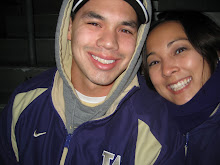As my current Walden ITC course reaches an end, I have started to think about some the ways that I can begin to implement many of the strategies and techniques that we have been exploring throughout this course. With today’s population of students so immersed with technology, it is imperative for the educators to begin to both adapt and evolve the way they are both teaching and connecting with their students. Nick DeKanter reinforced the importance of integrating digital-based games into the classroom. DeKanter explained how, “…content-rich strategy games built on a highly flexible simulation engine is the perfect hub to the spokes of educational duality” (DeKanter, 2005, p. 29).
One of the goals that I would like to strive for is to continue to research some of the digital games available for teachers. Digital games provide students with an engaging and motivating way to both learn and practice a variety of skills. Leah Hoffman explained how, “Electronic games can inspire players to explore new ideas and concepts” (Hoffman, 2009, p. 21). Although electronic games appear to have a significant impact upon how students are learning, it is important to note that they are simply a teaching tool to help support teachers. Karen Billings shared how, “The effective deployment of any instructional resource requires the support of teachers” (Billings, 2009, p. 26). The techniques and tools that I learned about throughout this course have provided me with many resources and ideas on how to best educate students in today’s society. In order to help my students both learn and retain the types of skills they will need, I definitely plan to incorporate digital-based gaming into my instruction.
Kevin Richstad
References:
Billings, K. (2009). Lessons from the trenches. School Library Journal, 55(10), 26–27.Retrieved from the Education Research Complete database.
DeKanter, N. (2005). Gaming redefines interactivity for learning. TechTrends, 49(3), 26–32. Retrieved from the Education Research Complete.
Hoffman, L. (2009). Learning through games. Communication of the ACM, 52(8), 21–22. Retrieved from the Academic Search Premier database.
Sunday, April 25, 2010
Subscribe to:
Post Comments (Atom)



No comments:
Post a Comment